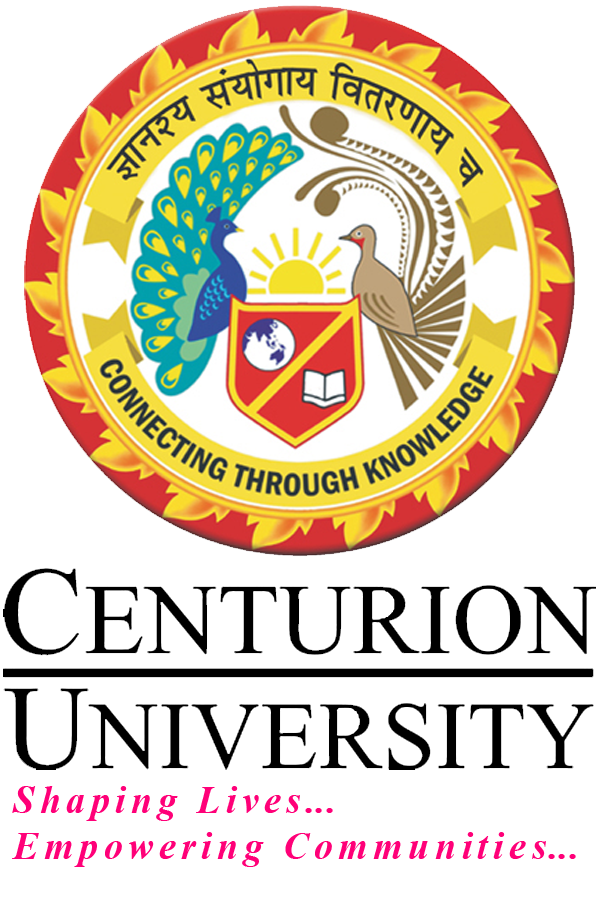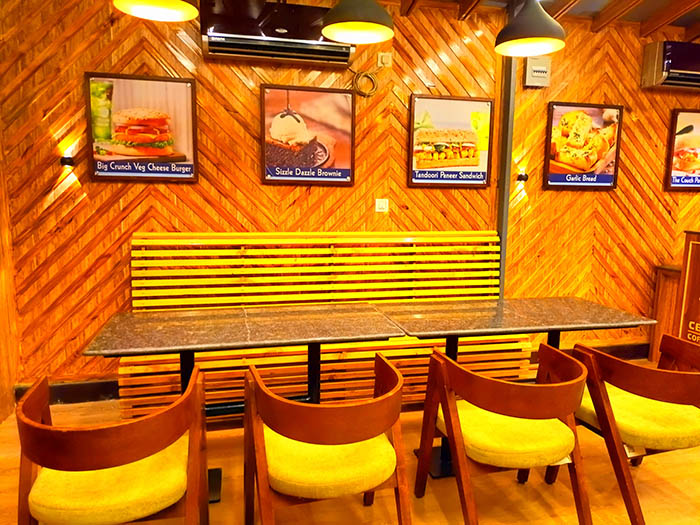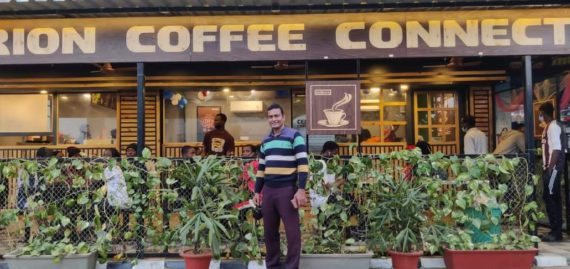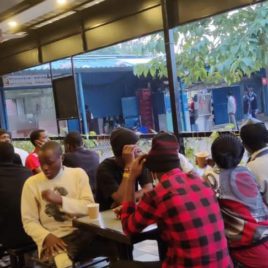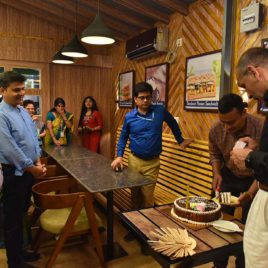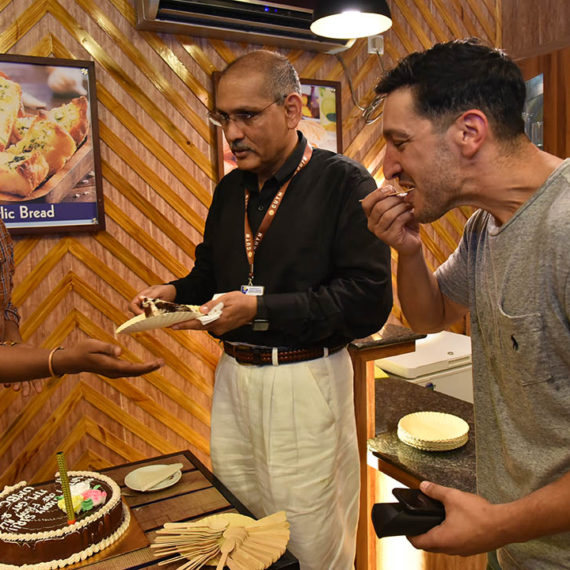Learning Outcomes:
- To be able to understand the concepts of effective retailing.
- To develop knowledge of various retail formats particularly in food and QSR related cases.
- To get a helicopter view on QSR outlets.
Theory:
Module I: Introduction to world of Retailing:
Its economic significance and opportunities. Types of retailers: trends in retailing, retailer characteristics, food and General Management merchandise retailers, non-store retail formats, services retailing and types of ownership. Multichannel retailing: retail channels and shopping in future.
Module II:An overview of QSR:
Its types, functions, characteristics, attributes and Job roles of a QSR Manager/Outlet In-charge.
Project:
Students to visit a QSR outlet to study various departments and basic functions. And then to submit a detailed report of what all they observed in the outlet.
Learning Outcomes:
- To make the students learn the display and labeling techniques in a retail store.
- To enable the students to get familiar with health, hygiene, safety and environmental standards.
- To develop the important managerial and life skills related to merchandizing and customer relations.
- Students shall be able to design service quality measurements to build customer loyalty and evaluate the effectiveness and efficiency of customer service offerings.
- Students shall be able to understand the roles played by employees and customers during service delivery with the application towards a QSR outlet.
- Students shall be able to explain service blueprinting and its application to a QSR outlet.
Module I: Preparing Display Areas and Goods in a Retail Store
Identifying need for the display in relation to stock, space, position of the display and dates; Checking that the display area is right size and report any concerns promptly; Gathering the materials, equipment and stock that is needed for the display and check that they are clean, safe and in good working order; Following company procedures for clearing, cleaning and preparing the display area before use.
Module II: Dismantling Displays in a Retail Store
Setting up and dismantling the display safely, in line with the plans and within the time allowed; Checking the display has the levels of stock needed; Cleaning and storing the equipment and excess materials, getting rid of waste safely, correctly and promptly; Protecting the parts of the display from being damaged during dismantling; Returning the parts of display to the appropriate places promptly and if needed in a saleable condition; Getting rid of unwanted materials safely and keeping accurate records of this; Cleaning display sites and parts using safe and approved cleaning materials and equipment.
Module III: Managing customer service
Service quality dimensions, Service quality and measurement SERVQUAL Service failure and recovery, CRM approaches in retailing, Importance of customer service.
Module IV: Role of Employees and Customers in service delivery
Role of Intermediaries Service process and blue printing, Service scape, Demand and capacity management.
Practice / Role play:
- Steps of customer service at a QSR outlet.
- Customer interaction and feedback collection.
- Dos and Don’ts of customer service.
- Resolving Customer Concerns
- Service recovery
- Establish effective rapport with customers.
- Respond appropriately to customers.
- Solve immediate customer service problems
- Communicate correct and relevant information to customers.
- Identify repeated customer service problems and options for solving them.
- Address customer needs, comments, and complaints with the design of an effective complaint management system
Project:
- Visit a QSR outlet to observe what sort of complaints normally arise and how the manager deals with it.
- Visit the QSR outlet to do the customer service analysis (Employee grooming, product knowledge, communication, customer interaction, presentation, etc.).
Learning Outcomes:
- Students shall be able to understand the inventory and the supply chain issues in a QSR outlet.
- Students shall be able to design effective HR policies to maximize the employee/staff productivity.
- Students shall be able to understand the importance of displays and the store layout suitable to a QSR outlet.
Module I: Inventory, logistics and supply chain management of QSR
Supply chain, retail logistics, physical distribution, retail inventory and warehouse management and e-logistics with respect to QSR
Module II: Dismantling Displays in a Retail Store
Strategic retail planning process, business operations and financial developments: the structure of business, budgeting in retail, investment decisions, financial evaluation, strategic profit model.
Module III: Store administration
Store layout, design and visualmerchandising: objectives of good store design, space planning, merchandise presentation techniques,importance of atmospherics, recruiting and selecting store employees, socializing and training, motivation andevaluating employees.
Practice / Role play:
- Track stock levels of food, supplies, and equipment, forecast needs, and oversee ordering, as necessary.
- Take ownership of budgets and cost control methods to minimize expenses
- Ensure all employees are working within outlined operating standards
Learning Outcomes:
- Help to prepare students to meet the challenges associated with the Food and Beverage Industry. Able to do the hazard analysis, food safety checks and implement preventive control.
- Understand the process of food handling.
- Will be able to prepare food & beverage items to maintain their freshness and quality.
Module I: Food preparation, service area and staffing
Important points to be considered while planning a layout, Layout of coffee shop, Quick service restaurant. Ensuring the availability of raw materials for preparing food and beverage. Readiness of the different work station for the food & beverage processing.Organization of F & B Department of QSR outlet, Duties and Responsibilities of F & B Staff, Attributes of F & B staff with the steps involved in order of service, Intra & Inter departmental relation with F & B Service.
Module II: Introduction of QSR Equipment:
Classification of equipment (familiarization), Criteria for selection and requirement. Quantity and Types of Crockery, Tableware, Glassware, Linen, Furniture. Care & Maintenance of these equipment’s, Sideboard - its uses, Vending Machines- Importance, Advantage and Disadvantage
Module III:Menu & Menu Planning:
Origin of menu & menu planning objectives, Types of menu, menu planning - consideration & constraints, Menu designing, ordering food & supplies and developing the team. How to control P&L maintaining inventory, wastage management and reviewing financial reports and taking appropriate actions.
Module IV: Health and hygiene for food handlers
For food handler what need to do, contamination of food through illness or unclean. Documenting and maintaining a record of food and beverage while processing like thawing temperature, shelf life, list of allergenic food items etc.
Practice / Role play:
- Prepare the layout of coffee shop and QSR.
- Design the menu card for a QSR
- Prepare and maintain the thawing chart.
- Take the inventory of ingredients and maintain the FIFO (ingredient storage rack).
- Look for temperature abuse, especially for frozen food, live signs of thawing. (E.g. water droplets on the product, textural changes, etc.)
Project:
- Students to visit any of the QSR outlets and study different workstations, learn the usage of different equipment etc.
- Students to do a study on any of the QSR outlets to understand the process of keeping various records during food preparation/handling and safety measures taken by the staff.
Learning Outcomes:
- Develop critical thinking skills and lead the organization.
- Develop an understanding of change processes and be able to think critically about obstacles to change.
- Demonstrate organizational leadership capacity.
Module I: Leadership conceptual background
Understanding leaders and leadership, need for leadership, leader’s vs managers, leadership the changing paradigm. Prerequisites of organizational leader
Module II: Theories of leadership
Leadership styles, leadership skills, leadership traits, Concepts of Power & Authority, Managing Conflict, Ethics & Leadership
Module III: Skill of a team leader
Building high performance teams, empowerment of followers, leadership development
Text Books:
- Leadership and Team Building by UdayHaldar, Oxford Publishing House
- Berman, B., Evans, J. R. (2008). Retail Management-A Strategic approach. Prentice Hall India
- Fresh Food Retail Chains in India: Organisation and Impacts - Sukhpal Singh and Naresh Singla (2018), CMA Publications
- Customer Service in Retailing: Anil Mishra and Ruchi Gupta, Biztantra
Reference Books:
- Theory of Cookery By K Arora, Publisher: Frank Brothers
- Food & Beverage Service - Dennis R.Lillicrap. & John .A. Cousins. Publisher: ELBS
- Peter Northouse – Leadership Theory & Practice
- Levy, M., Weitz, B., Pandit, A. (2012). Retailing Management. Tata McGraw-Hill. Reprint in 2013.
